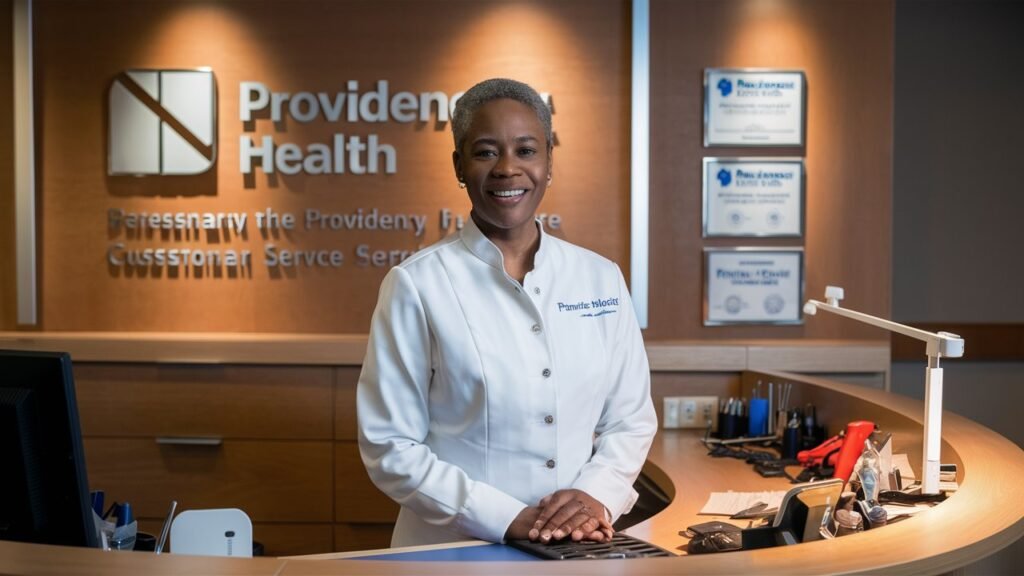As a support specialist at Providence Health, your role is crucial in ensuring smooth operations and providing exceptional service to patients and staff. Excelling in this position requires a combination of technical skills, empathy, and strategic thinking. In this comprehensive guide, we will explore stealth tips that can help you become an effective support specialist, handle challenges efficiently, and advance your career within the healthcare industry.

Understanding the Role of a Support Specialist
Support specialists at Providence Health play a pivotal role in ensuring that patients receive high-quality care and that healthcare providers have the necessary tools and resources. This role involves a mix of technical support, administrative tasks, and customer service. Understanding the full scope of your responsibilities is the first step towards excelling in this position.
Key Responsibilities
- Providing technical support to healthcare staff
- Managing patient records and administrative tasks
- Ensuring compliance with healthcare regulations
- Offering exceptional customer service to patients and families
Essential Skills for Success
To be a successful support specialist, certain skills are essential. These skills help you perform your duties efficiently and contribute positively to the healthcare environment.
Technical Proficiency
Being proficient with healthcare software and technology is crucial. Familiarize yourself with electronic health records (EHR) systems, scheduling software, and other relevant tools.
Communication Skills
Effective communication is vital in a healthcare setting. You need to convey information clearly and compassionately to both patients and staff.
Problem-Solving Abilities
Healthcare environments are fast-paced and often unpredictable. Having strong problem-solving skills helps you address issues promptly and effectively.
Empathy and Patience
Working in healthcare requires a high level of empathy and patience. Understanding the concerns of patients and providing support with kindness can make a significant difference.
Stealth Tips for Daily Operations
Implementing stealth tips in your daily operations can enhance your efficiency and effectiveness as a support specialist.
Tip 1: Prioritize Tasks
Start your day by prioritizing tasks based on urgency and importance. Use tools like task management software to stay organized.
Tip 2: Stay Updated with Policies
Regularly review Providence Health’s policies and procedures. Staying updated ensures you are always compliant and aware of the latest guidelines.
Tip 3: Develop a System for Documentation
Create a consistent system for documenting interactions and updates. This not only helps in staying organized but also ensures transparency and accuracy.
Tip 4: Utilize Checklists
Use checklists for routine tasks to ensure nothing is overlooked. This is especially useful for tasks like equipment checks and administrative duties.
Effective Communication Strategies
Effective communication can significantly improve the quality of support you provide. Here are some strategies to enhance your communication skills.
Active Listening
Practice active listening by fully concentrating on the speaker, understanding their message, and responding thoughtfully. This builds trust and rapport.
Clear and Concise Messaging
When communicating complex information, break it down into simple, understandable parts. Avoid jargon unless you are sure the other person understands it.
Non-Verbal Communication
Pay attention to non-verbal cues like body language and facial expressions. These can provide additional context to the spoken words and help you respond appropriately.
Regular Feedback
Provide and seek regular feedback. This helps in continuous improvement and ensures that any issues are addressed promptly.
Handling Common Challenges
Support specialists often face various challenges. Here are some common ones and how to handle them effectively.
Challenge 1: High Workload
To manage a high workload, prioritize tasks, delegate when possible, and use time management techniques.
Challenge 2: Difficult Patients
Handle difficult patients with empathy and patience. Listen to their concerns, offer solutions, and remain calm and professional.
Challenge 3: Technical Issues
Stay updated with the latest technology and troubleshooting techniques. Having a solid understanding of common technical issues can help you resolve them quickly.
Challenge 4: Compliance with Regulations
Regularly review and understand healthcare regulations. Attend training sessions and keep yourself informed about any changes in policies.
Leveraging Technology for Better Support
Technology plays a significant role in healthcare support. Here’s how you can leverage it to provide better support.
Use EHR Systems Efficiently
Electronic Health Records (EHR) systems streamline patient information management. Ensure you are proficient in using these systems to enhance efficiency.
Implement Telehealth Solutions
Telehealth solutions can improve accessibility and convenience for patients. Familiarize yourself with these technologies to offer better support.
Utilize Mobile Apps
Mobile apps can aid in scheduling, communication, and task management. Explore relevant apps that can make your work easier and more efficient.
Stay Informed About New Tools
Keep yourself updated with the latest technological advancements in healthcare. This knowledge can help you suggest and implement new tools that improve operations.

Continuous Learning and Professional Development
Continuous learning is crucial for personal and professional growth. Here are some ways to stay updated and advance your career.
Attend Workshops and Training
Participate in workshops and training sessions offered by Providence Health. These can help you stay updated with the latest practices and technologies.
Pursue Certifications
Consider pursuing relevant certifications that can enhance your skills and qualifications. Certifications in healthcare support, IT, or customer service can be beneficial.
Join Professional Networks
Joining professional networks and associations can provide opportunities for learning and networking. Engage with peers to share knowledge and experiences.
Read Industry Publications
Subscribe to industry publications and journals. Staying informed about the latest trends and developments in healthcare can give you a competitive edge.
Frequently Asked Questions
What is the primary role of a support specialist at Providence Health?
The primary role of a support specialist at Providence Health is to provide technical and administrative support to healthcare staff and offer exceptional customer service to patients.
How can I improve my technical skills for this role?
You can improve your technical skills by attending training sessions, pursuing relevant certifications, and staying updated with the latest healthcare technologies.
What strategies can help in managing a high workload?
Prioritizing tasks, using time management techniques, and delegating responsibilities when possible can help manage a high workload effectively.
How important is empathy in this role?
Empathy is extremely important in this role as it helps in understanding and addressing the concerns of patients and providing support with kindness and compassion.
What are some common challenges faced by support specialists?
Common challenges include managing a high workload, handling difficult patients, resolving technical issues, and ensuring compliance with healthcare regulations.
Conclusion
Being an effective support specialist at Providence Health requires a blend of technical skills, effective communication, and empathy. By implementing the stealth tips outlined in this guide, you can enhance your efficiency, handle challenges with confidence, and advance your career in healthcare support. Continuous learning and professional development are key to staying updated and excelling in this dynamic field. Embrace these strategies and make a positive impact in your role as a support specialist at Providence Health.




